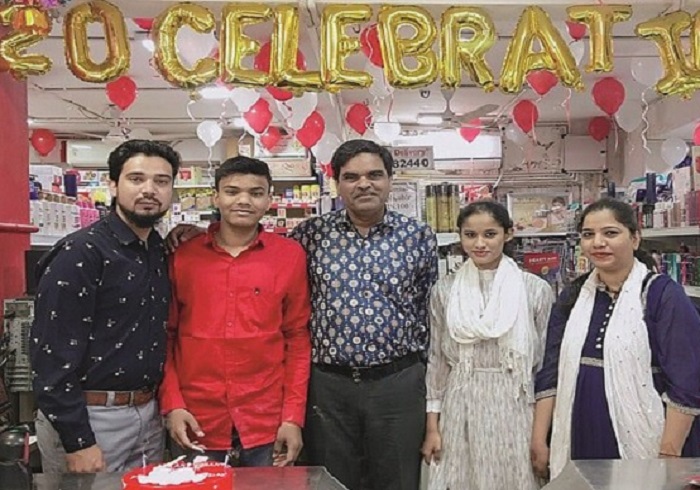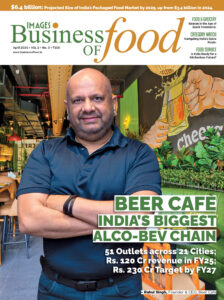Retail doesn’t always mean capital, stake holdings and profits. There are some retailers who work towards social, economic and developmental changes in communities. One such retailer is Hearty Mart. Hearty Mart’s vision has always centered round creating an enterprise that went beyond generating economic value for its stakeholders – building an enterprise that fosters positive social change for the community at large.
Business and commerce are the lifeblood for building a healthy economy. A retailing business, for example, generates immense opportunities for the people around. They create financial value for the employees and the founders alike. Retailers also have the power to foster a lot of qualitative changes in the communities they engage with. In doing so, they create real and tangible social and economic value for the community they interact with.
One such example of a retailer making a social impact is the Gujarat-based Hearty Mart – a company that is propagating the ethos of Indian rural cohesiveness and promoting the welfare of its employees and their village.
Hearty Mart operates 15 stores spanning approximately 23,000 sq. ft. of retailing area in Gujarat’s rural market, covering small towns and villages. The company also runs its FMCG unit through which it manufactures good quality food & grocery products and Indian spices for supplying to hotels and also for exporting them overseas.
Among Hearty Mart’s various social initiatives like training and mentoring village youth to become entrepreneurs in their own right, one of its initiatives in Sathal – an unassuming village in central Gujarat that stands out for its social impact in the lives of villagers. Two farmers from the same family, Wazir Ali (Managing Director at Hearty Mart) and Hussain Abbas (CEO at Hearty Mart), decided to take a chance and enter the world of trading as suppliers to highway hotels to diversify their income stream. As they grew in their business journey, their desire to give back to Sathal became more pronounced.
Initially, they started out by hiring more people in Hearty Mart from their community. Having a personal rapport helped them foster a more familial organizational structure that broke the red tape and rigidities of traditional single-line structure. To date, Hearty Mart has an extremely low attrition rate because of the cohesive organizational culture it has developed.
“We are more a family at Hearty Mart, which allows us to function better,” says Hussain Abbas. Echoing the sentiment, Wazir Ali says: “Sharing the same background has allowed us to perform better.” They also credit Nadeem Jafri (Founder and Chief Mentor at Hearty Mart) for helping them realise the potential of their social capital at an early stage. Jafri says, ‘‘My aim always was to create an enterprise that goes beyond generating economic value for its stakeholders. I wished to create an enterprise that fosters positive social change for the community at large.’’
This feeling resonates with the employees too. Hassan Abbas, who manages the production unit of Hearty Mart, says, “I never went to college, but I had a lot of potential, which Hearty Mart was able to see. I was one of the early employees of the organisation, and I was allowed to grow and reinvent myself here. Each day, I look forward to a new challenge so that I can contribute in making the organisation bigger and more efficient.” Many of the employees, including Wazir Ali and Hussain Abbas, have only completed 10th or 12th grade schooling. But this hasn’t stopped an employee from growing within the organisation.
Recently, Hearty Mart completed 19 years of operations, and the employees had a photo shoot amongst themselves as part of the celebrations. Looking at the pictures, an employee reminisced about the change that has come to his life after joining Hearty Mart and how grateful he is for what he has gained after joining the organisation.
Some employees of Hearty Mart have taken it upon themselves to curb the digital demographic divide by making books and technology accessible to the residents of Sathal. They have set up a library and a desktop so that young and old alike can come together and engage in self-eduction by virtue of these resources.
During the deadly second-wave of Covid-19, the same space was repurposed as an emergency medical center where first aid support was offered to those in need. Such foresight and competence often come with the unique experiences one comes across while running operations of a business
Hearty Mart is contributing to making a visible social and economic impact on Sathal. There are quite a few ways in which it has been a conduit for direct change.
- 1. Hearty Mart employs about 80% youth of the village community that Wazir Ali and Hussain Abbas hail from.
- 2. They have also set up a fund from the company profits that are used for the purpose of the development of Sathal. The needs of the people are assessed, and the funds are released to ensure their proper usage.
- 3. In order to ensure that mobility doesn’t become a big issue for the employees, a bus has been deployed which takes them to and fro from the village to the office space. This not only ensures a more sustainable mode of commute, but also is financially more viable for the employees
- 4. Hearty Mart, in this capacity, has been able to incorporate not just the employees of the organisation but their homes as well. This has allowed it to expand into different segments and grow over the past two decades
Hearty Mart’s success story thus underscores the importance of entrepreneurship, community building, and the roles of businesses in fostering sustainable economic development in society.
The article is published in June edition of Progressive Grocer titled ‘How Retailer Hearty Mart is Transforming a Village Economy and its Community’. To read the full article, subscribe to the magazine HERE.




